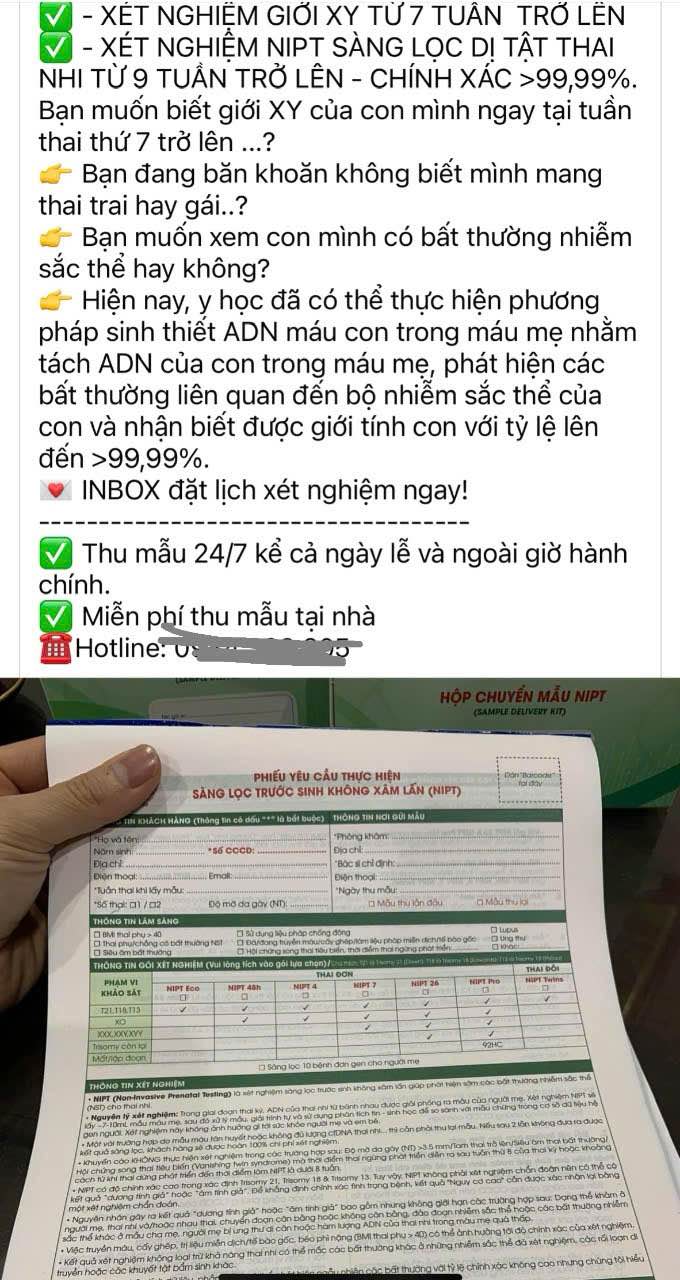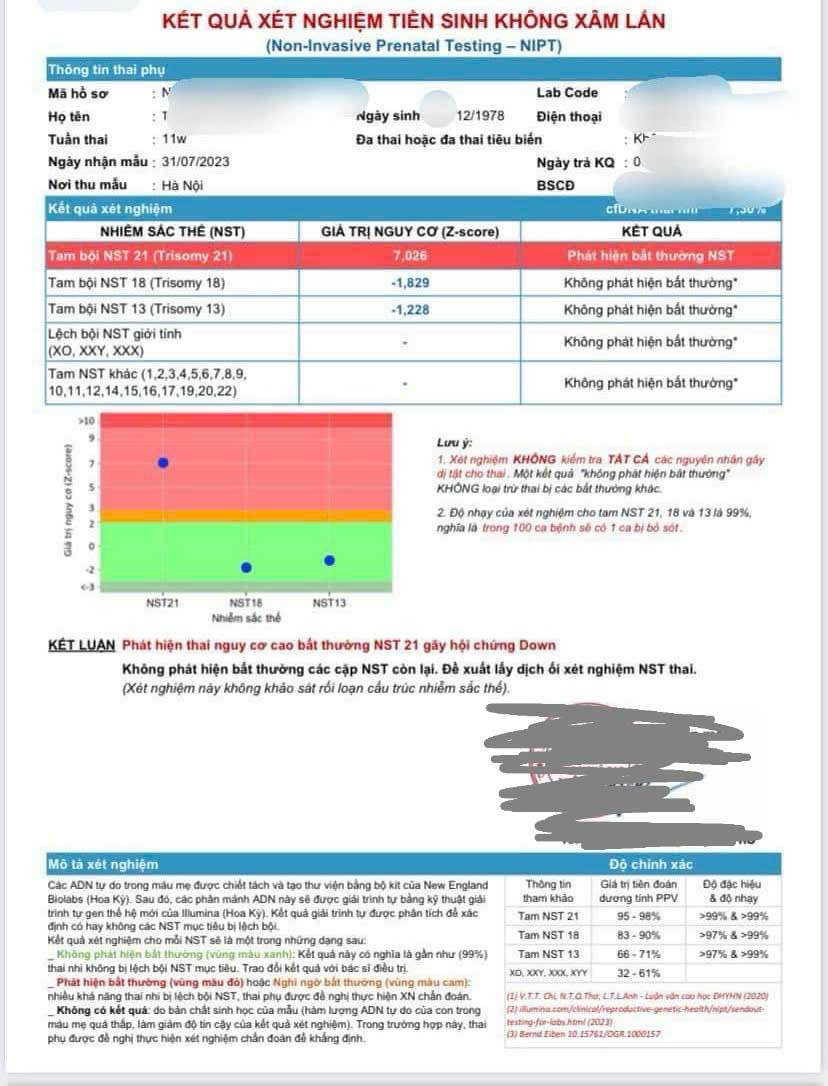What is NIPT test?
NIPT is a prenatal screening method for pregnant women. This method is chosen by many pregnant women because of its non-invasive advantages, helping to detect early fetal birth defects for effective pregnancy management.
The test is based on the free fetal DNA in the mother's blood, from which it examines the number of abnormalities in the fetus's 23 chromosome pairs. With the NIPT screening method, only 7-10ml of the mother's blood is needed to perform the test.
Dr. Tran Anh Duc, Hanoi Obstetrics and Gynecology Hospital, recommends that pregnant women should have NIPT testing early in pregnancy, from the 9th week onwards, to detect abnormalities in order to have timely intervention and effective pregnancy management. Especially for pregnant women who are older and have a high risk of genetic diseases, it is even more necessary to perform these methods.
Is the cheap, at-home NIPT testing service reliable?
Recently, on social networks, many individuals have appeared to offer NIPT testing to screen for fetal abnormalities at home, with preferential costs for pregnant mothers. Common traps to approach pregnant women include unexpected deep discounts and lower costs than other facilities. This is a "trap" that plays on the psychology of cheapness of pregnant mothers.

According to the advertisement, after registering for the NIPT package on demand, there will be staff coming to your home to take blood for free, collect samples 24/7 including holidays; committed to being able to do NIPT testing from 7 weeks old, only need a fetal heartbeat; many families who want to know the gender of the fetus early also trust and the gender test can be taken from the 7th week and only after 36 - 48 hours will have results.
According to Dr. Nguyen Trung Dao - Hanoi Obstetrics and Gynecology Hospital, taking blood at home cannot be guaranteed because the sample collection and transportation process is not standard. Normally, pregnant mothers should go to reputable hospitals and clinics to take blood for NIPT testing at home to ensure safety and accuracy.

The doctor also warned that he had received cases where home testing using service packages floating around the internet showed chromosomal abnormalities, but when they went to the hospital for a re-examination, the results were not the same. Many pregnant mothers fell into a state of confusion because there was no doctor or specialist to advise or provide appropriate direction.
In the face of unnecessary risks, doctors say that pregnant mothers should always be alert and consider carefully when choosing NIPT testing services. Prioritize large hospitals and clinics specializing in obstetrics and gynecology to perform the test. Do not let flashy advertisements or cheap prices compromise the health of the mother and fetus.











